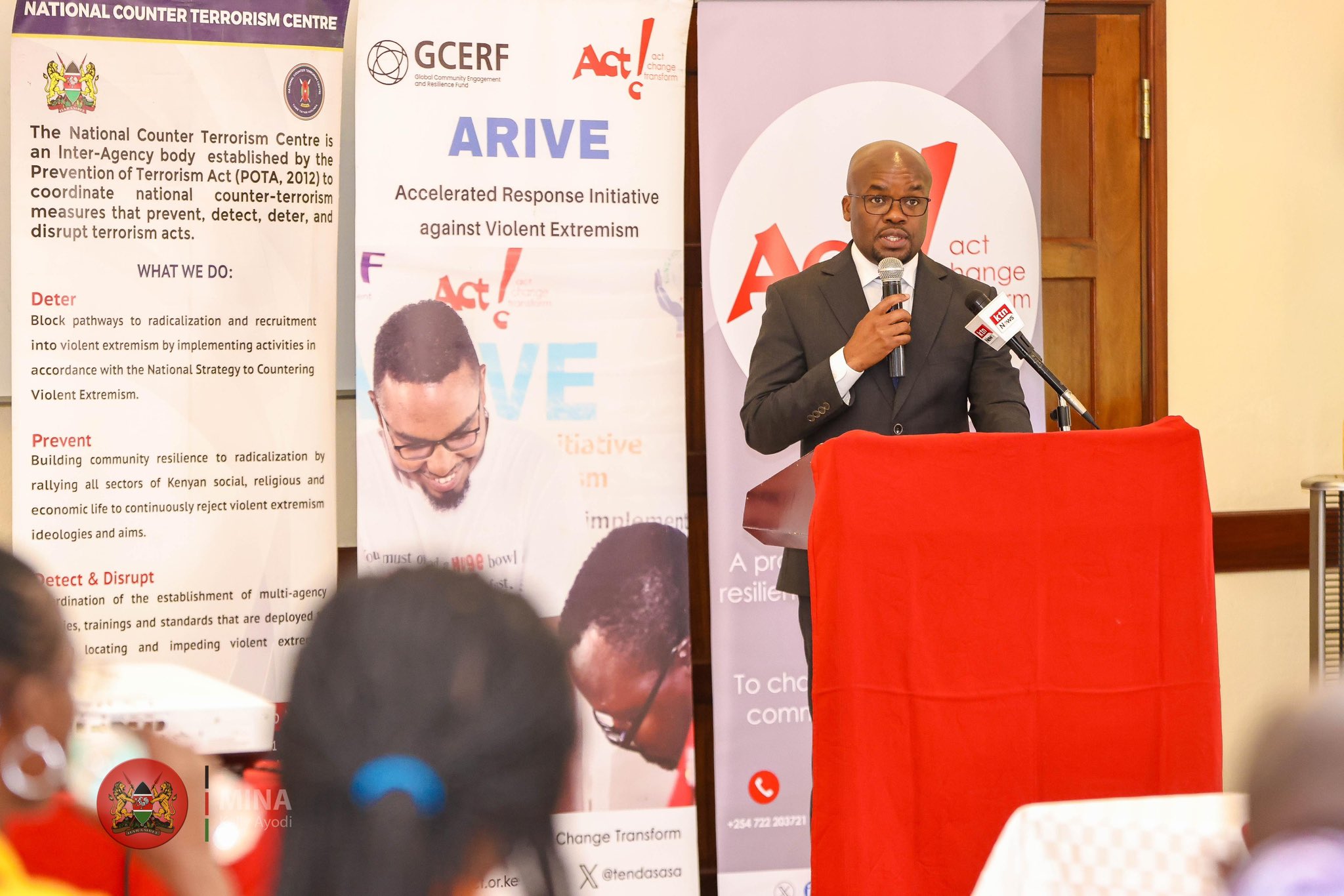New Bill seeks to devolve aspects of counter-violence extremism prevention to counties

The Bill seeks to give governors a direct mandate in overseeing the development of programmes and actions for the mainstreaming of the prevention of violent extremism in consultation with relevant stakeholders.
A new Bill is set to devolve aspects of the Prevention and Countering Violent Extremism (PCVE) to counties to address vulnerabilities at the grassroots levels.
If passed into law, the Bill dubbed "The County Prevention of Violent Extremism Model Bill, 2023" will give each of the 47 Governors a direct mandate in overseeing the development of programmes and actions for the mainstreaming of the prevention of violent extremism within the counties in consultation with relevant stakeholders.
More To Read
- Horn of Africa sees decline in extremism victims, but militants adapt with new tactics
- Explosive violence monitor reports deadliest year since 2010 with 67,000 casualties
- Westgate attack: The day Kenya’s terror fight became a global concern
- UN counter-terrorism body partners with Kenya to combat digital terror networks
- Somali intelligence confirms killing of dozens of Al-Shabaab fighters in raid
- IGAD urges vigilance as region hits key counter-terrorism milestones
The bill also gives governors powers to appoint a non-executive chairperson with relevant skills and knowledge in matters relating to PCVE.
The chairperson shall lead the county prevention of violent extremism committee that will be tasked with spearheading PCVE matters in their respective county.
The Bill further gives Members of the County Assemblies (MCAs) the role of promoting education and training on matters related to the prevention of violent extremism within the county in consultation with the committee and other relevant stakeholders, developing programmes and activities on the mainstreaming of prevention of violent extremism within the county.
It also tasks the county legislators with the role of implementing the direction of the governor in relation to the implementation of the Act and other issues relating to the bill including regularly updating and debating the database of programmes relating to the prevention of violent extremism in the county.
Composition of committee
The Bill says the committee shall further comprise the chief officers in charge of planning, youth affairs and matters PCVE; a representative of the youth involved in PCVE matters, the informal sector, two involved in PCVE work in the civil society sector, two representatives of the inter-faith forum drawn from the predominant religions in the country and one representative of persons with disability.
 The scene at the Fish Point Kiosk in Mandera town, where a terror attack on March 25, 2024 left four people dead. (Photo: Adan Mohamed)
The scene at the Fish Point Kiosk in Mandera town, where a terror attack on March 25, 2024 left four people dead. (Photo: Adan Mohamed)
"The committee may co-opt not more than three members at any given time with relevant expertise when needed to advise on specific matters relating to the prevention of violent extremism," the bill states.
The Bill further dictates the length of their tenure with the chairperson serving five years, three years in the case of appointed persons as long as they retain their substantive posts.
The committee shall be responsible for advising the governor on county laws, policies, strategies and norms in relation to the prevention of violent extremism; promoting the mainstreaming of prevention of violent extremism within existing county programmes and activities; promoting socio-economic empowerment for at-risk persons and vulnerable groups to reduce their vulnerability to violent extremism in the county.
It shall also promote dialogue including intra-faith, interfaith and intergenerational dialogue and community engagement towards promoting trust, tolerance and understanding within the county; foster the development of mechanisms for resilience building and strengthening participation in the prevention of violent extremism and promoting partnerships for effective resource mobilisation for purposes of this Act.
"Through the National Counter Terrorism Centre (NCTC), the government is integrating Preventing and Countering Violent Extremism (P/CVE) initiatives into national and county development frameworks, reaffirming its commitment to aligning security with socio-economic development at the devolved units," Interior Principal Secretary Raymond Omollo said during a meeting with stakeholders to discuss the Bill on Wednesday this week.
Members shall meet quarterly, a maximum of four times a year, but may hold meetings more frequently depending on the urgency of business and may from time to time establish sub-committees for the better carrying out of its functions with its quarterly reports of its activities being submitted to the governor and the county assembly.
The Bill says they shall be remunerated as recommended by the Salaries and Remuneration Commission (SRC), and their meeting expenses handled by the county department handling matters PCVE.
The Bill comes at a time when the country is set to launch its second strategy to counter violent extremism which each county shall be expected to produce mechanisms for implementation under its individual working plans for countering violent extremism.
Top Stories Today














































